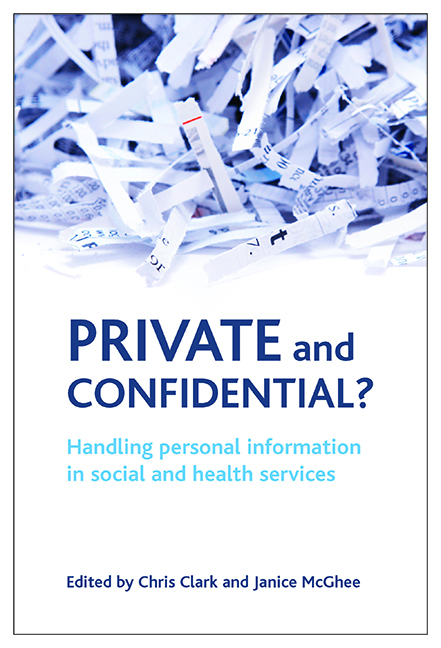two - Confidentiality, trust and truthfulness in professional relationships
Published online by Cambridge University Press: 21 January 2022
Summary
The problem
Professional codes of ethics standardly contain the expectation of confidentiality. The following plain and concise statements from the General Medical Council can well serve as a working definition of the principle as it applies in all the personal service professions (GMC, 2000):
Doctors hold information about patients which is private and sensitive. This information must not be given to others unless the patient consents or you can justify the disclosure. (p 1)
Patients have a right to expect that information about them will be held in confidence by their doctors. Confidentiality is central to trust between doctors and patients. Without assurances about confidentiality, patients may be reluctant to give doctors the information they need in order to provide good care. If you are asked to provide information about patients you should:
Seek patients’ consent to disclosure of information wherever possible, whether or not you judge that patients can be identified from the disclosure.
Anonymise data where unidentifiable data will serve the purpose.
Keep disclosures to the minimum necessary.
You must always be prepared to justify your decisions in accordance with this guidance. (p 2)
The familiar core principle of confidentiality is well elaborated in the literature (for example, Beauchamp and Childress, 1994; Clark, 1995) and its import will therefore be taken for granted in the following discussion.
Professional codes also contain at least an implied expectation that professionals will tell the truth. Typically this is much more indirectly and less clearly expressed than the expectation of confidentiality. The following are representative discussions of the expectation of honesty or truth-telling.
From the field of medicine, Beauchamp and Childress (1994, p 307) comment that: ‘Surprisingly, codes of medical ethics generally ignore rules of veracity’, explaining the concept ‘veracity, an obligation to tell the truth and not to lie or deceive others’. They propose three arguments for rules of veracity in relationships between healthcare professionals and patients: that veracity is part of the respect we owe others; that it follows from the obligation to keep promises; and that it is necessary for fruitful interaction and cooperation. But they note that ‘nondisclosure, deception and lying will occasionally be justified when veracity conflicts with other obligations’ (p 309).
- Type
- Chapter
- Information
- Private and Confidential?Handling Personal Information in the Social and Health Services, pp. 35 - 48Publisher: Bristol University PressPrint publication year: 2008

